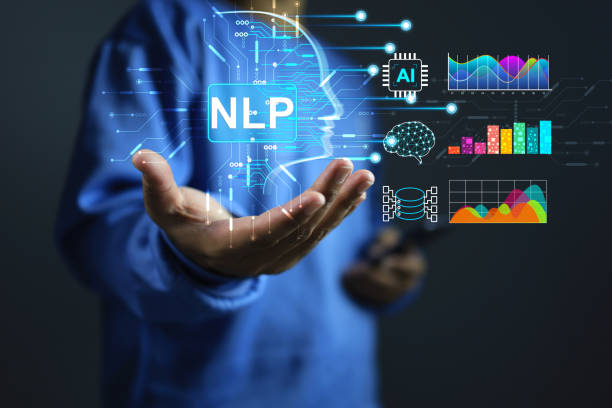PhD in Applied Linguistics - Distance Learning: Introduction, Admission, Registration, Eligibility, Duration, Fees, Syllabus 2024

Introduction:
In the evolving landscape of higher education, distance learning has emerged as a viable and increasingly popular method for pursuing advanced degrees. A Ph.D. in Applied Linguistics through distance learning offers flexibility and accessibility, allowing students from around the world to engage deeply with the complexities of language without the constraints of geographic and temporal boundaries. This blog will explore the various facets of acquiring a Ph.D. in Applied Linguistics via distance learning, including admission processes, eligibility criteria, completion times, career opportunities, syllabus content, internship opportunities, and available scholarships and grants.
Admission Process:
- Application Submission: Candidates must submit a detailed application that includes academic transcripts, a statement of purpose, research proposals, and letters of recommendation.
- Academic Requirements: Most programs require a master's degree in linguistics or a related field. Applicants should demonstrate strong academic performance in their previous studies.
- Language Proficiency: As the program deals extensively with language, proficiency in at least one additional language apart from English is often required.
- Interviews: Some institutions conduct interviews (either in person or via teleconferencing) to assess candidates' research interests, motivation, and suitability for the program.
- Technical Requirements: Since the program is offered online, applicants must have access to a reliable internet connection and the necessary computer equipment to participate in digital classrooms and access online resources.
- Fees and Funding: Understanding the fee structure and securing funding or scholarships is crucial, as some institutions may have higher tuition fees for distance learning courses.
Eligibility:
- Educational Background: A master's degree in linguistics, languages, or a closely related field is typically required.
- Research Experience: Experience in research, especially related to linguistics, is highly valued.
- Technical Skills: Proficiency with computational tools and data analysis software may be necessary, depending on the research focus.
- Communication Skills: Excellent written and verbal communication skills are essential for success in a Ph.D. program.
- Self-Motivation and Discipline: Distance learning requires a high level of self-motivation and the ability to work independently.
- Cultural Sensitivity: Given the global and multicultural aspects of applied linguistics, an understanding and sensitivity towards different cultures is beneficial.
Completion Time:
The completion time for a Ph.D. in Applied Linguistics via distance learning typically ranges from 3 to 6 years. The duration may vary based on the student’s pace, the structure of the program, and the time taken to complete the dissertation.
Career Opportunities:
- Academia: Graduates can pursue careers as professors or researchers at universities and colleges.
- Language Education: Opportunities exist in curriculum development and educational consulting in various educational institutions and language schools.
- Translation and Interpretation: Expertise in linguistics is valuable in the field of translation and interpretation, especially within international organizations.
- Linguistic Consulting: Corporations and governmental agencies often seek linguistic consultants for language-related services and policy development.
- Publishing and Editing: With their deep understanding of language, graduates are well-suited for careers in publishing, particularly in roles that involve editing educational and linguistic content.
- Technology and Software Development: Linguists are increasingly involved in developing language technology, such as speech recognition software, AI language learning apps, and more.
Syllabus:
- Theoretical Linguistics: Advanced studies in syntax, semantics, and phonology.
- Research Methods in Linguistics: Quantitative and qualitative research methodologies specific to linguistic study.
- Sociolinguistics: Examines the relationship between language and society.
- Psycholinguistics: The study of the psychological and neurobiological factors that enable humans to acquire, use, and understand language.
- Language Policy and Planning: Focuses on the development and implementation of language policies in multilingual settings.
- Technology in Linguistics: Exploration of how technology impacts language use, learning, and preservation.
Internship Opportunities:
- Research Internships: Working with experienced linguists on ongoing projects.
- Teaching Assistantships: Gaining teaching experience in online university courses.
- Language Documentation: Participating in projects that document endangered languages.
- Corporate Internships: Applying linguistic skills in industry settings, such as tech firms developing language-related products.
- Non-governmental Organizations (NGOs): Engaging in language policy and planning for multilingual communities.
- Publishing Houses: Assisting in the editing and publication of linguistic research.
Scholarships and Grants:
- University-Specific Scholarships: Many institutions offer scholarships specifically for Ph.D. students in linguistics.
- Government Grants: National and international grants for research in linguistics and language education.
- Private Foundations: Foundations often fund research in specific areas of applied linguistics.
- Research Grants: Funding for specific projects, often available through academic societies.
- Travel Grants: For attending international conferences and seminars.
- Needs-Based Grants: Offered to students from underrepresented or economically disadvantaged backgrounds.
FAQs:
Can I work while completing my Ph.D. in Applied Linguistics?
Yes, many distance learning programs are designed to be flexible to accommodate working professionals.
What technical skills will enhance my learning and research in Applied Linguistics?
Skills in data analysis, programming, and familiarity with digital research tools are highly beneficial.
Are there opportunities for face-to-face interaction in a distance learning Ph.D. program?
Yes, some programs offer residencies or require occasional campus visits for workshops, seminars, or networking events.
